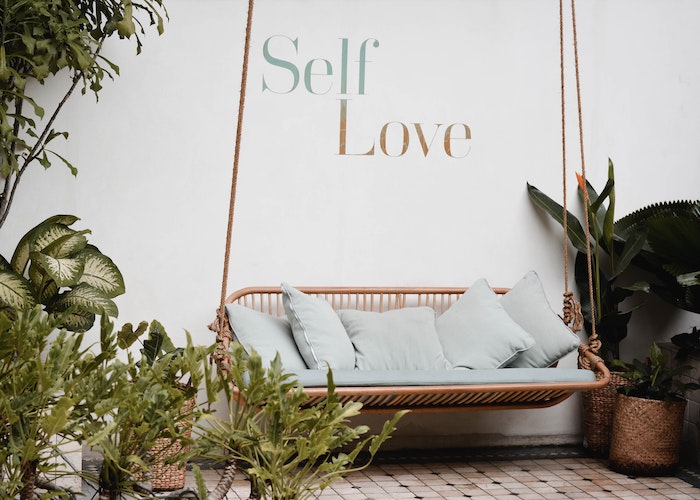The year was 2011, and I was enjoying an outdoor college poetry class on the most idyllic of spring days. A playful breeze wafted stray cherry blossoms over the heads of the ten or so students gathered in front of our professor. Distant shouts and cheers could be heard from the lacrosse game taking place across our small, immaculately-groomed liberal arts campus. I sipped my iced caramel latte and brushed a stray blossom from the page of my open textbook, purchased new from the bookstore on campus. Our professor began reading that week’s assigned poem aloud in a soothing tone, then stopped and looked up at us. Some transcendent insight had just occurred to her, and she had to share it with us. “I hope when you all graduate you don’t just take the first job you can get,” she said. The small class remained reverently silent as she continued dispense her wisdom: “Do what you love. The money will follow.”
I heard this same advice and similar approximations several times in my remaining year as an undergraduate student. Another popular saying: “Follow your passions, and you’ll never work a day in your life!” These mentalities wormed their way into my psyche as I prepared for graduation in 2012. Three years later, at age 25, I would like to officially call BS on this often-repeated, yet ultimately damaging, advice.
Fortunately for me, the breezy mottos I learned in college about artistic integrity didn’t seem to jive with my wise, hardworking parents’ advice: “Focus on succeeding in school while you’re there. After graduation, focus on becoming financially independent.” It’s probably pretty obvious which path sounded better to me at the time, an idealistic new liberal arts graduate boasting a double major in two subjects that frequently top the “most useless degree” internet lists. Of course I should hold out for a job I absolutely loved! I needed something that would allow me to be ~creative~. I wasn’t the type of person who could even SURVIVE a soul-crushing corporate 8-5pm job.
Reality soon set in. I might picture myself as someone who should be contributing to *literary* publications and enjoying the schedule flexibility I needed to *create*, but “experience” and “exposure” were not forms of currency accepted by my landlord. I needed to take whatever job I could secure with my new degree, and that happened to be a full-time position as a marketing writer for one of the dreaded soulless corporations.
Looking back three years later, I was actually incredibly fortunate to land a full-time job with benefits so soon after college. But coming from a tiny little pocket of educational and financial privilege, I felt that I had sold out completely. I procrastinated signing up for a 401(k) until my parents all but forced me to because it seemed like one of those “finance things” that I couldn’t possibly address myself because I wasn’t a “math person.” (Yes, I know how unbelievably stupid this sounds.)
Most of my college friends were pursuing MFAs or travelling the world (subsidized by parents, loans, or a combination of both). I was headed to a cubicle churning out ad copy. I viewed their existence through the rosy lens of social media, and seethed with envy as I sat at my desk looking at the beautiful scenery or solitary cup of coffee they were somehow enjoying at 10:30 am on a weekday.
Every day, I left work feeling drained, defeated, and filled with the sinking feeling that I was accomplishing absolutely nothing of value. I was chasing the money instead of “what I loved.” Every day I fantasized about quitting, before remembering the inconvenient reality that my parents were no longer interested in being my financial cushion, and I needed a paycheck to survive. I went back to school for alumni weekend and looked at all of the happy undergraduate students, blissfully unaware of the real life drudgery that awaited them. I sincerely felt that the best days of my life were behind me.
To make myself feel more equal to my peers, I enrolled in an evening Master’s program that it turned out my company would pay for. Of course now I know that this was a wonderful employee benefit, but at the time all I wanted to do was be in graduate school full-time, and I was resentful of the 40-hour work week I needed to put in to make it happen. I loved my courses, but it turns out three-hour writing workshops are less creatively stimulating when I had to drive 45 minutes in post-work rush hour traffic to get there instead of lazily waking up from my mid-afternoon nap and walking across a beautifully manicured lawn. I envied students who took out loans and worked part-time at coffee shops so they had enough time to really hone their written craft. Between grad classes and growing responsibilities at work, I found myself busier than I had ever been in my life (something I wouldn’t have thought possible when I worked myself into a ~finals week frenzy~ in college–AKA lots of Starbucks and all-nighters with friends).
Once graduate school and my second year of employment was in full swing, I no longer had time to compare myself to my peers. Instead, I was waking up every day with a sense of purpose in order to simply complete all of the tasks ahead of me. I began to enjoy the feeling of broadening my horizons at work or tackling school assignments that didn’t interest me at first glance. Instead of worrying about what people would think of my general direction in life, I began to derive enjoyment from another day’s work accomplished. I stopped limiting my actions based on what I felt aligned with my self-identified passions. I got over my fear of numbers and began taking responsibility for my own finances, learning how to save and invest my hard-earned cash.
And this is when I started to change my whole world view. The whole “do what you love and the money will follow” mentality started to seem, quite frankly, like bullshit. Dangerous bullshit. Now, it seems like a kind of “artistic cult” mentality. This sentiment is rampant among certain affluent artsy and educational communities, and can truly and permanently mess up someone’s life. Sure, if you have other means of financial support, go ahead and attend graduate school full-time. But don’t impose your idealistic nonsense on impressionable students. The pressure to “do what you love” at all times is absurd at best and downright irresponsible at worst. I love puppies, but does that really mean I should open up a doggie daycare when I have zero business acumen and no start-up capital?
With the help of summer classes and winter terms, I finished my Master’s degree last year. The degree combined with my professional experience allowed me to get a new, higher-paying and even more intimidatingly corporate position as a technical writer and editor in a scientific field (something that would have absolutely horrified my collegiate self). And guess what? I don’t absolutely love my work. I don’t feel passionate about every report that crosses my desk. But I do love the independence it affords me. I am able to work remotely twice a week, meaning I can be one of those people at a coffee shop at 10:30 am on a weekday. I have enough disposable income to participate in writer’s retreats in beautiful wilderness areas (using paid vacation days, of course)! I can take a personal day to chat about poetry on a lawn while sipping a caramel latte if I so desire. I enjoy playing my instrument for a gig worth few hundred bucks without worrying about how much I really earned after filling my gas tank to get there. I take pride in the fact that I can finish a day’s work having applied my skills, learned something new, and contributed toward my own financial security.
Looking back, I know that I have my smart parents and some circumstantial luck to thank for the fact that I didn’t blindly sign up for a bunch of loans to continue my educational and artistic journey to “follow my passion.” I wish I could visit all of the soon-to-be graduates of yuppie campuses everywhere and tell them that striving for financial independence is not something to look down on. I want each and every one of them to know that they don’t have to feel ashamed of looking for a “real job” that they might not love. It is important to find balance between the skills you enjoy cultivating and a career that will pay the bills. The fact is, even for those who are truly passionate about the work that pays their bills, work will still feel like work sometimes. It won’t always be fun, and you will work lots of days in your life. And that’s a good thing! It is through really working for something that you feel the true satisfaction that comes from reaping the rewards, financial and otherwise.
Julia is a writer and editor living and working in Richmond, Virginia. Follow her on Twitter.




